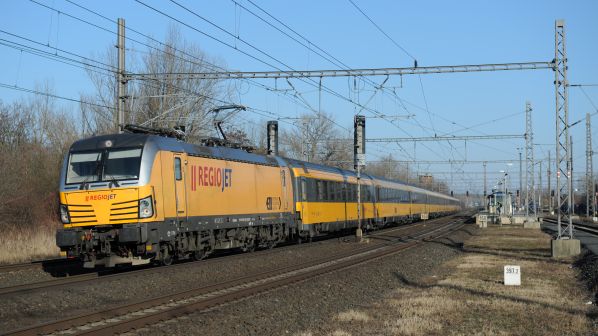THE co-founder of Dutch start-up European Sleeper, Mr Chris Engelsman, says the company is happy with the paths it has been allocated for its inaugural service from Brussels to Prague, but says the process of organising cross-border paths is still difficult.
“We are very happy with the paths that we got, it’s not exactly the paths what we applied for but reasonable,” Engelsman told IRJ. “One thing that we found quite difficult is the process because it’s supposed to be a one stop shop but that really didn’t work. There has been a lot of work and we found we had to do a lot of the cross-border interaction ourselves.”
European Sleeper announced on November 1 it had received the approval for the required train paths to operate a service that will operate between the Belgian and Czech capitals via Amsterdam and Berlin, after applying for the paths in the Netherlands.
“The idea is that in one country you apply for an international train path and then the country that you applied to is supposed to arrange the international paths,” he says. “But that’s not the case. It requires quite a lot of knowledge on it and we had to be persistent.”
Engelsman says there is a willingness from the individual infrastructure managers to approve the paths, but the varying standards between countries meant it was technically challenging, with European Sleeper staff required to complete some of the work to achieve this.
The resulting service will take between 14 and 15 hours, which Engelsman says is a little slower than expected but still reasonable. While the timetable is still be developed, he says the service may arrive in Berlin at 06.00 which was earlier than they had hopped, but the return service would arrive in Amsterdam around 06.30 which could be more attractive for passengers.
European Sleeper is currently in discussions with RegioJet, which will provide the train and staff and operate the service in the Czech Republic, around the train composition including the number of sleeper, couchette and seating cars.
Belgian National Railways (SNCB) is expected to operate the service in Belgium, while European Sleeper is in discussions with open-access operators to haul the train in Germany and The Netherlands.
“It’s not difficult, it’s just about finding the right one and seeing what the conditions are,” Engelsman says.

